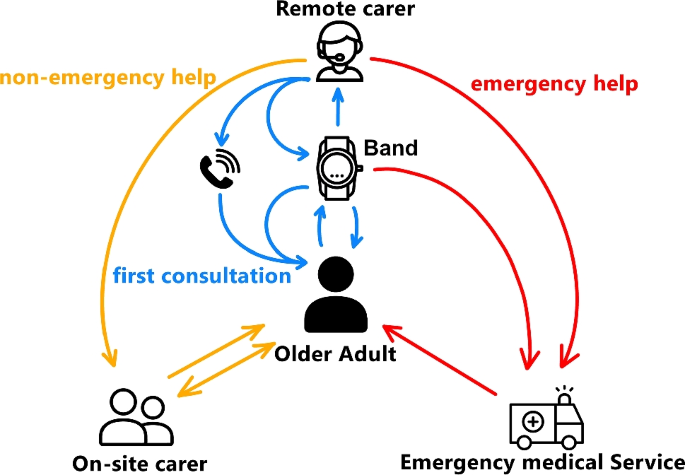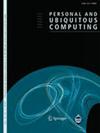‘That’s when I put it on’: stakeholder perspectives in large-scale remote health monitoring for older adults
Q1 Social Sciences
引用次数: 0
Abstract
Abstract Remote health monitoring (RHM) provides various benefits to older adults, but its use is still limited. Remote monitoring may help in avoiding emergencies and prolong users’ independence. To understand how to design systems which support older adults, we studied a large-scale remote health monitoring system. The system used fitness-grade smartwatches to monitor the vital signs of more than 2000 users constantly. To probe the lived experience of using RHM, we conducted an explorative interview study ( N = 41) with operators, carers, and users of the RHM system. Our thematic analysis reveals that personalisation of care ecology is crucial for developing users’ confidence and trust in the system. We found that participation in RHM may catalyse positive changes in older adults’ lifestyles. Based on our findings, we formulate five recommendations for designing future health monitoring systems. Our work contributes to insights into the lived experience and stakeholder ecology of health monitoring systems.

“那就是我戴上它的时候”:老年人大规模远程健康监测的利益相关者观点
远程健康监测(RHM)为老年人提供了各种好处,但其应用仍然有限。远程监控可能有助于避免紧急情况,并延长用户的独立性。为了了解如何设计支持老年人的系统,我们研究了一个大型远程健康监测系统。该系统使用健身级智能手表,持续监测2000多名用户的生命体征。为了探究使用RHM的生活体验,我们对RHM系统的操作员、护理人员和用户进行了一项探索性访谈研究(N = 41)。我们的专题分析显示,护理生态的个性化对于培养用户对系统的信心和信任至关重要。我们发现,参与RHM可以促进老年人生活方式的积极变化。基于我们的研究结果,我们提出了设计未来健康监测系统的五个建议。我们的工作有助于深入了解健康监测系统的生活经验和利益相关者生态。
本文章由计算机程序翻译,如有差异,请以英文原文为准。
求助全文
约1分钟内获得全文
求助全文
来源期刊

Personal and Ubiquitous Computing
工程技术-电信学
CiteScore
6.60
自引率
0.00%
发文量
35
审稿时长
6-12 weeks
期刊介绍:
Personal and Ubiquitous Computing publishes peer-reviewed multidisciplinary research on personal and ubiquitous technologies and services. The journal provides a global perspective on new developments in research in areas including user experience for advanced digital technologies, the Internet of Things, big data, social technologies and mobile and wearable devices.
 求助内容:
求助内容: 应助结果提醒方式:
应助结果提醒方式:


